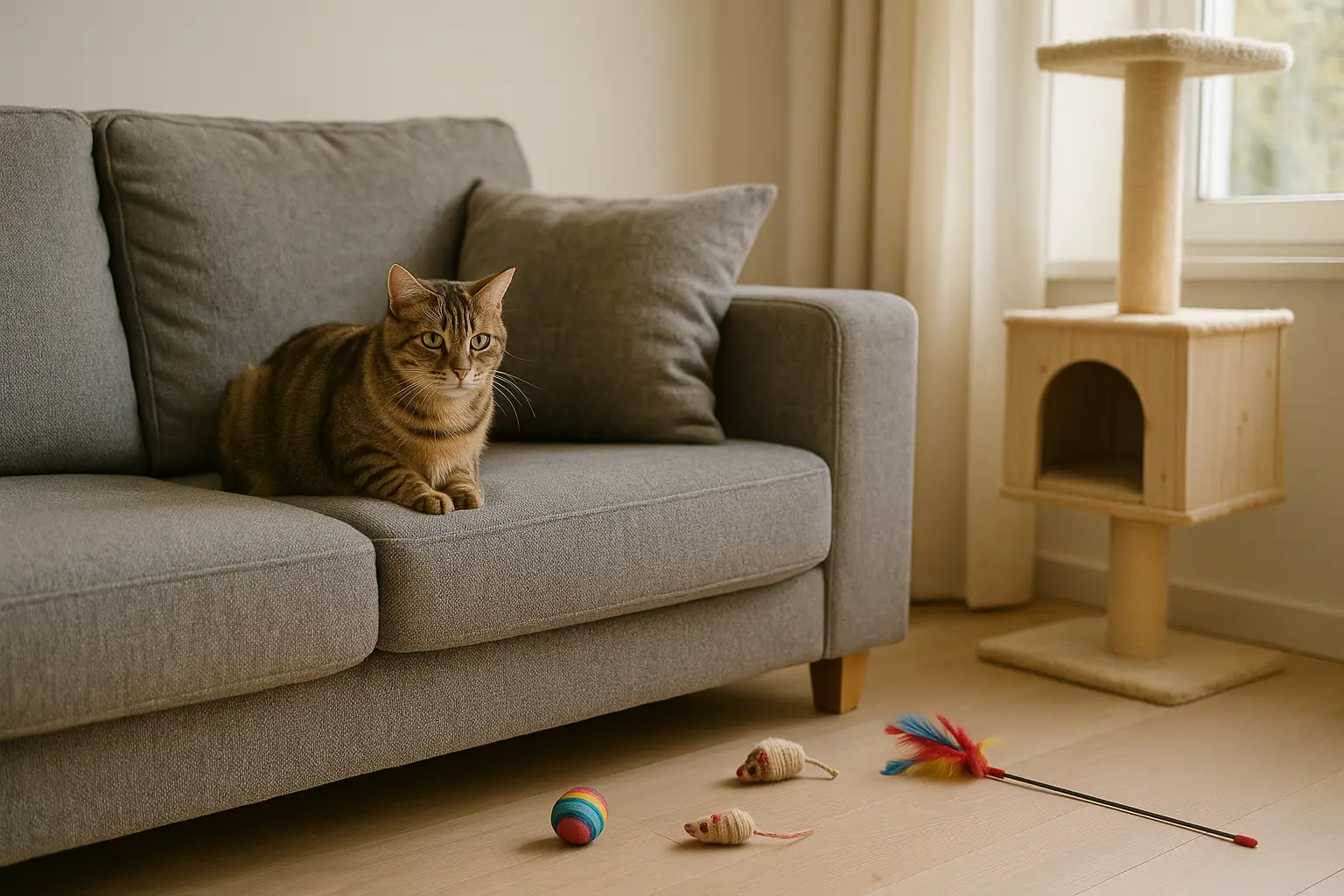
- June 5, 2025
- Cat Care TipsFeline Separation AnxietyLeaving Cats AlonePet Sitting AdviceStress in Cats
Leaving Your Cat Home Alone
Leaving Your Cat Home Alone: A Complete Guide to Feline Well-Being
Introduction
Cats are often seen as independent pets, but that doesn’t mean they thrive when left alone for extended periods. While they may not need constant attention like dogs, they still require care, enrichment, and a secure environment to ensure their physical and emotional well-being. In this guide, we’ll explore how long cats can safely be left alone, signs of stress or separation anxiety, and best practices to keep your feline friend content in your absence.
How Long Can You Leave a Cat Alone?
Factors That Determine Safe Alone Time
- Age: Kittens under 6 months need regular feeding and social interaction, while adult cats are more independent.
- Health: Senior cats or those with medical needs require more frequent checks and possibly medication.
- Personality: Some cats are naturally more social and crave human interaction, while others prefer solitude.
- Environmental Enrichment: The more stimulating your cat’s home environment, the more content they’ll be on their own.
General Guidelines
- Kittens (< 6 months): Should not be left alone for more than 3-4 hours.
- Adult Cats: Can typically manage 8-12 hours.
- Senior Cats or Cats with Health Conditions: Require closer monitoring, so shorter absences are best.
If you’re planning to be away for longer than 12 hours, consider:
- Asking a friend, neighbor, or pet sitter to check in.
- Using a professional cat-sitting or pet care service.
- Boarding your cat at a reputable facility if appropriate.
How to Tell if Your Cat Is Stressed When Left Alone
Cats may not always vocalize their feelings, but they do show signs of stress. Key indicators include:
- Hiding or withdrawing from family members.
- Less tolerance of interaction or petting.
- Avoiding the litter box or using inappropriate places.
- Reduced appetite or refusal to eat.
- Increased vocalization or excessive silence.
- Destructive behaviors (e.g., scratching furniture).
- Gastrointestinal issues like vomiting or diarrhea.
If these symptoms appear, consult a veterinarian to rule out medical conditions and explore changes in your routine or environment that could alleviate stress.
What Does Separation Anxiety Look Like in Cats?
While separation anxiety is often associated with dogs, cats can also suffer from it. Symptoms may overlap with general stress but can include:
- Excessive Vocalization: Loud, persistent meowing or crying when alone.
- Destructive Behavior: Scratching furniture, knocking over objects, or damaging doors.
- Inappropriate Elimination: Urinating or defecating outside the litter box.
- Over-Grooming: Bald patches or irritated skin from excessive licking.
- Changes in Appetite: Eating significantly more or less than usual.
- Pacing or Restlessness: Constant movement or inability to settle.
These behaviors may also signal boredom or health issues, so a veterinary evaluation is essential before implementing behavioral strategies.
Conclusion
Leaving your cat home alone doesn’t have to be stressful—for you or your feline. With thoughtful preparation and attention to your cat’s unique needs, you can ensure they remain safe, comfortable, and emotionally healthy while you’re away. Use these insights to build a routine that works for both of you, and remember: when in doubt, a vet or pet care professional can provide personalized guidance.
FAQs:
1- Can I leave my cat alone for a weekend?
Only if someone checks in at least once daily to provide fresh food, water, and monitor well-being.
2- What are the best toys to keep a cat busy when alone?
Puzzle feeders, catnip mice, and interactive laser toys can provide mental stimulation.
3- Do cats get lonely when left alone all day?
Some cats do experience loneliness. Signs include clingy behavior or vocalization upon your return.
4- Should I get a second cat to keep mine company?
Maybe—some cats benefit from a feline friend, but others prefer being the only pet. Compatibility is key.
5- Is using a camera or pet monitor helpful?
Yes, it can provide peace of mind and let you observe your cat’s behavior while you’re away.